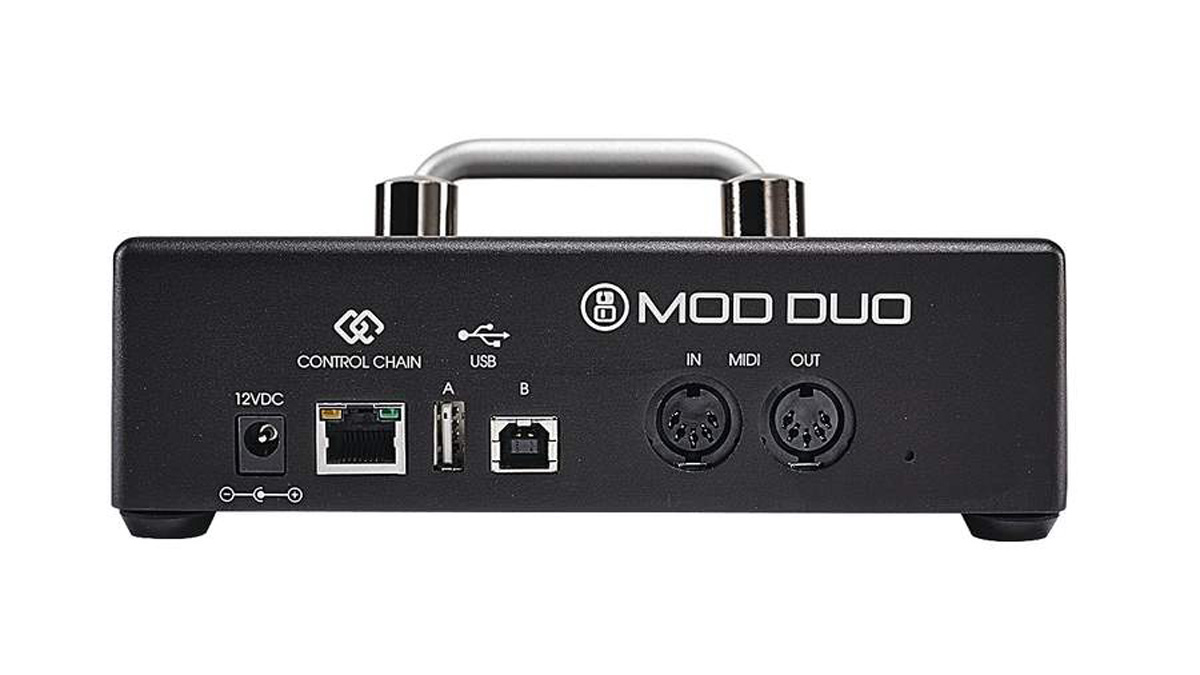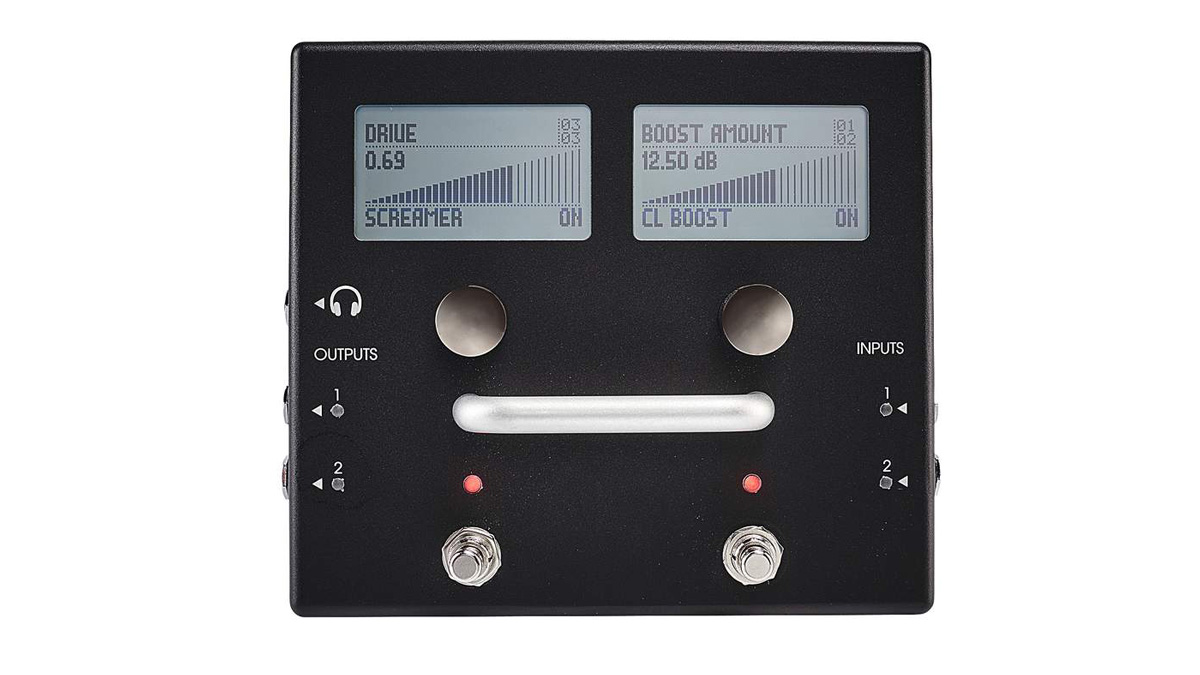MusicRadar Verdict
A thoroughly modern combination of DSP power and interface simplicity that provides a wealth of quality processing for musicians.
Pros
- +
Linux-based open source system, which avoids the gremlins of many tablet-based solutions.
- +
Internal signal and controller routing for creative performance possibilities.
- +
Easy to operate, edit and archive through the browser interface.
Cons
- -
Signal headroom is low for line level - could do with a -20dB input pad setting.
- -
The hardware settings menu gets fiddly with an over-sensitive rotary selector (to be addressed in an update, apparently).
MusicRadar's got your back
The MOD Duo’s stylishly minimal stage-proof casing houses two backlit LCD screens, two footswitches, two selector knobs, two analogue inputs/outputs, MIDI In/Out, USB and an ethernet socket for the proprietary Control Chain system.
In essence this is a DSP engine (ARM A7) running a stripped-down version of Linux for a range of audio generating/processing tasks. The sound editing is carried out via an internet browser using a local IP address over USB, either wired or wireless.
Performance control is via the two footswitches and rotary selector knobs as well as MIDI. MOD Duo is simple to operate and program. Editing pedalboards (ie program/patch) through the graphic browser interface is a standard drag-drop-wire affair with quick access to a whole library of mostly free plugins, which as an open source system is extensive but well curated.
The community development aspect is strong with the MOD product line, making information and help easy to find via the forum and wiki manual. Back at the interface, pedalboards are easy to edit, save and arrange into banks, while setting up controllers (physical/MIDI) is pleasingly intuitive. With plenty of CPU power, pedalboards can be as complex as you like. Alongside effects are a range of sound generators, from synth oscillator types to sampled virtual instruments.
With a variety of MIDI utility plugins, all sorts of sound generators can be constructed, rather like Reaktor, including drum machines. The gain staging, adjustable only on the hardware settings menu and subject to an over-sensitive rotary knob, helps tailor the MOD Duo to a variety of situations, from guitar/bass pedal to acting as a mixed vocal/keys/synth/drumbox performance tool, or even a studio stereo/dual mono effects processor.

The only drawback for the latter use is that the input signal must be well below a nominal line level to prevent clipping; a -20dB input pad would be welcome. The flipside is that the MOD Duo can work with dynamic mic inputs, allowing a performer to have a vocal/instrument mic, a range of MIDI controlled instruments and a guitar/bass with internal mixing to combine these sources across the two output ports.
Sound quality is good, as is the (current) range of effects and instruments, from guitar/bass pedals to electric pianos. Each building block is easy to adjust, most featuring an economical set of parameters. The drag-plug interface wiring is intuitive and provides a huge range of cross-coupling possibilities that just aren’t practical in analogue realm.
Want all the hottest music and gear news, reviews, deals, features and more, direct to your inbox? Sign up here.
The MOD Duo is a great base for a wide range of musicians and producers, and the scope of sonic possibilities make it a playground for experimenters/developers. The flexibility and quality are reflected in the price. As with any multi-function product one has to compare the outlay against the cost of components to match. The closest comparison is a tablet-based system with the additional audio/MIDI interface, and of course the pleasure/risk of an Apple/Microsoft OS!
For performers who demand a rich palette of source and processing the MOD Duo is a worthy investment, and one that will evolve thanks to its open source architecture.
